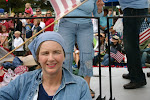Strange Exclusions: 1001 Books You Must Read Before You Die, Part VI
There's one book called 1001 Movies You Must See Before You Die and there's another called 1001 Books You Must Read Before You Die. I'm not an advocate of the "must . . . before you die" school of thought--there are no "musts" before you die--but I can understand the desire to see what a list of the top 1001 books on your lifetime reading list would look like. What would mine look like? It wouldn't look very much like the bibliography found in 1001 Books You Must Read Before You Die, that's for sure.
For the book's title being 1001 Books it's strange how the introduction appears oriented towards novels--and then, in the actual list, the term "novel" appears to be used rather loosely, and if the goal was to recommend 1001 novels then that should've been the title. I thought I'd find much more of these kind of books:
Classics of World Literature
The Illiad and The Odyssey
The Dialogues of Plato
The Prince by Machiavelli
The Communist Manifesto by Marx
Civil Disobedience by Henry David Thoreau (Walden is listed in 1001 Books You Must Read Before You Die but Civil Disobedience isn't)
The Federalist Papers
Women's Literature
A Vindication of the Rights of Woman by Mary Wollstonecraft
The Second Sex by Simone Beauvoir
The Feminine Mystique by Betty Friedan
Twentieth Century Classics
The Greek Way by Edith Hamilton
The Seven Pillars of Wisdom by T. E. Lawrence
Churchill's four-vol. History of the English-speaking Peoples
Kon-Tiki by Thor Heyerdahl
Born Free by Joy Adamson
The Diary of Anne Frank
From Here to Eternity by James Jones
The Good Earth by Pearl S. Buck
Riders of the Purple Sage by Zane Gray
Strange Omissions Considering Various Authors
Mark Twain is represented by The Adventures of Huckleberry Finn but not The Adventures of Tom Sawyer (which is almost a pre-requisite for Huckleberry Finn)
Poe is represented by The Fall of the House of Usher and The Pit and the Pendulum (which is usually classified as short fiction) but not by Masque of the Red Death or The Murders in the Rue Morgue
Theodore Dreiser is represented by Sister Carrie but not An American Tragedy
Steinbeck is represented by The Grapes of Wrath and Of Mice and Men but not East of Eden or Cannery Row or The Pearl or Travels With Charley or Tortilla Flat
Dickens is represented by Bleak House and David Copperfield and Great Expectations and Oliver Twist but not A Tale of Two Cities or A Christmas Carol
Sinclair Lewis is represented by Babbitt and Main Street but not Arrowsmith or It Can't Happen Here or Kingsblood Royal
Annie Proulx is represented by The Shipping News but not Brokeback Mountain (which is one of those works that sometimes is treated as short fiction and sometimes as a novel)
Robert Louis Stevenson is represented by Treasure Island and Jeckyll and Hyde but not Kidnapped
Joyce's Ulysses and Portrait of the Artist as a Young Man and Finnegan's Wake are included, but not Dubliners
Emphasis on the "novel" may explain--but not excuse--classic book-length poetic works, not just The Illiad and The Odessey, but also such works as Kahil Gibran's The Prophet and Longfellow's Hiawatha and Evangeline and The Courtship of Miles Standish.
Children's and YA Classics: The Little Prince, Pippi Longstocking, Carroll's Alice books, Twain's Huckleberry Finn, those are mixed in with adult--sometimes very adult--reading, but nobody thought to include the following:
Heidi by Johanna Spyri
The Secret Garden by Frances Hodgson Burnett
Bambi by Felix Salten
Rabbit Hill by Robert Lawson
Charlotte's Web and Stuart Little by E. B. White
Charlie and the Chocolate Factory and James and the Giant Peach by Roald Dahl
Peter Pan by J. M. Barrie
Hans Binker
The Swiss Family Robinson by Johann David Wyss
Black Beauty by Anna Sewell
The Wind in the Willows by Kenneth Grahame
YA classics such at The Outsiders by S. E. Hinton and Are You There, God, It's Me, Margaret by Judy Blume
A few more strange exclusions, before I close:
Generation X by Douglas Coupland
Forever Amber by Kathleen Winsor
The Confessions of Nat Turner by William Styron
The Autobiography of Malcom X and Roots by Alex Haley
Maybe someday when I have "nothing better to do" (like read a classic book), I'll undertake my own list of 1001 Books that should be on everyone's lifetime reading list. I'll probably have to break it up into five or ten installments.

